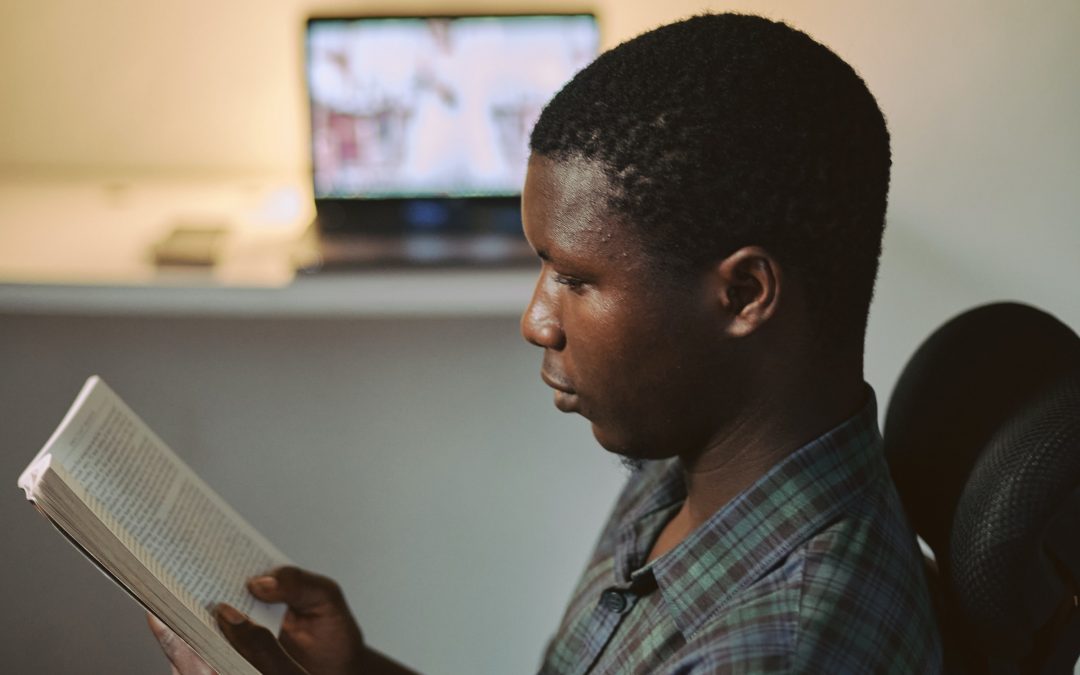Are you ready to go wherever God sends you, and to do whatever he asks you to do, now matter how strange or impractical it seems? Philip was willing to do that in Acts 8:26–40. He was having a hugely successful ministry to the city of Samaria, who “with one accord” (Acts 8:6) listened to Philip and “accepted the word of God” (8:14). Yet, when an angel appears to him and tells him to go to the least promising venue (“a desert road”; 8:26), at the worst time of day (“toward the south/about noon”; 8:26), Philip is prepared to leave a certain success for uncertainty.
When he obeys and leaves straight away, he meets “an Ethiopian, a eunuch, a court official of Candace, queen of the Ethiopians” (8:27). On the one hand, the eunuch is a man of high status. He is a very senior government official. He’s riding a chariot. He is able to read, which most could not in the first century. He is reading the prophet Isaiah, which means he owns his own scroll – indicating great wealth. He is clearly someone who worships the God of Israel, since he is coming back from the temple in Jerusalem. Yet on the other hand, in the ancient world Ethiopia was sometimes seen as “the ends of the earth” (reminding us of Acts 1:8), so this Ethiopian was very much a foreigner to Philip. He is a eunuch, so he could not be circumcised. That means that in the temple services, he could perhaps only worship in the court of the Gentiles (cf. Deuteronomy 23:1). So the Ethiopian eunuch is wholly “other” to Philip: exotic and strange; unclean and untouchable. Yet, just as Philip was obedient to the voice of God through an angel, he is now open to the Spirit’s voice. Most Jewish people walked slowly to show great dignity, but Philip was so keen to obey God that he actually ran to the chariot (8:29).
Philip doesn’t just preach to the Ethiopian, but starts from where he is. He has heard the man reading Scripture aloud, so Philip initiates the relationship with a question, “Do you understand what you are reading?” (8:30). The Eunuch begins with an honest and simple response, “How can I, unless someone guides me?” (8:31). Somehow the eunuch knew that Philip is a trusted guide and knows how to interpret Scripture. That is not all: Philip then demonstrates that he is able to interpret the Old Testament to point others to Christ, just as Jesus himself did on the Emmaus road in Luke’s earlier writings: Lk 24:27. He explains the passage – Isa 53:7–8 – to the Ethiopian, and just like in his ministry to Samaria, he points his listener to Christ, as it says in Acts 8:35: “he proclaimed to him the good news about Jesus.” The eunuch responds with faith and asks to be baptized. Philip senses that this is the moment and the man is ready, and so he baptizes the eunuch there and then. The man had only just come out of the water when we read in verse 39, “The Spirit of the Lord carried Philip away, and the eunuch saw him no more, and went on his way rejoicing”
What can you and I learn from Philip about being willing to go wherever God sends you, and to do whatever he asks you to do, now matter how strange or impractical it seems? Philip (1) is open to the voice of God to send him wherever he should go – whether that’s by an angel, or the voice of the Spirit or by God moving him onto a new place. Are you and I listening for God’s voice? (2) He is ready to do whatever God tells him to do, whether that is to preach to a city of the Samaritans – whose citizens were hated and despised by his own people (John 4:9) – or to minister to a foreigner like the Ethiopian eunuch, who might be seen as unclean. Are you and I willing to go wherever God sends us and to do whatever God tells us to do? If not, why not? (3) Philip knows the Scriptures and is able to use them to point people to Jesus. Do you know your Bible? Do you read it every day? Can you explain it to others in order to point them to Jesus? Let’s pray that we can be like Philip: a leader who is open to God’s direction, ready to do whatever God tells him, and points people to Jesus through his word.

